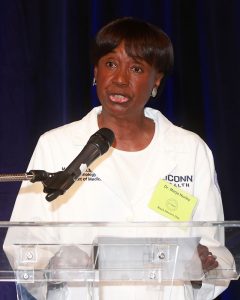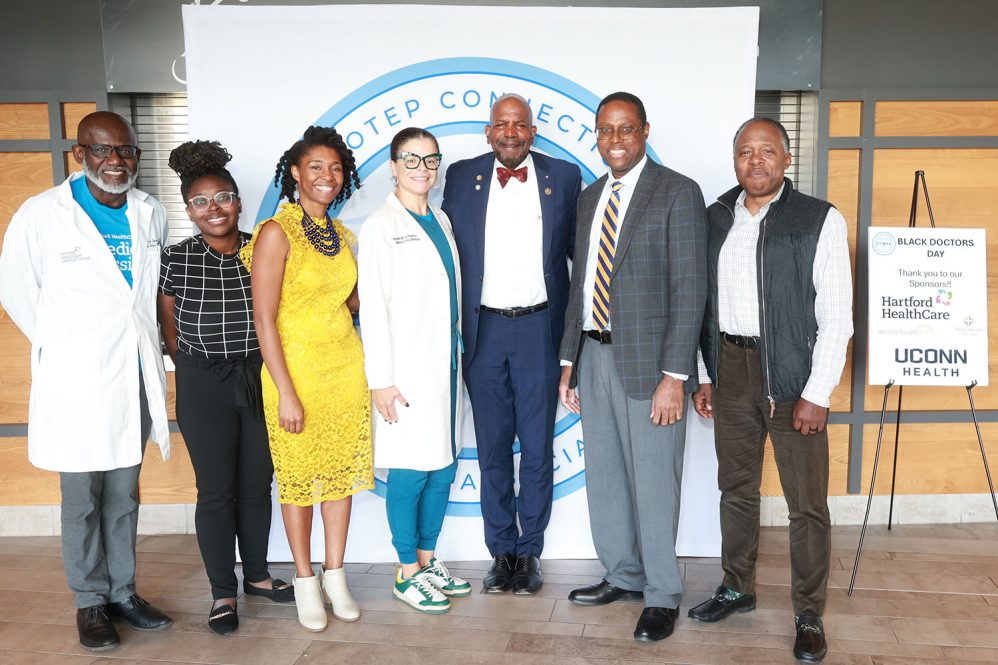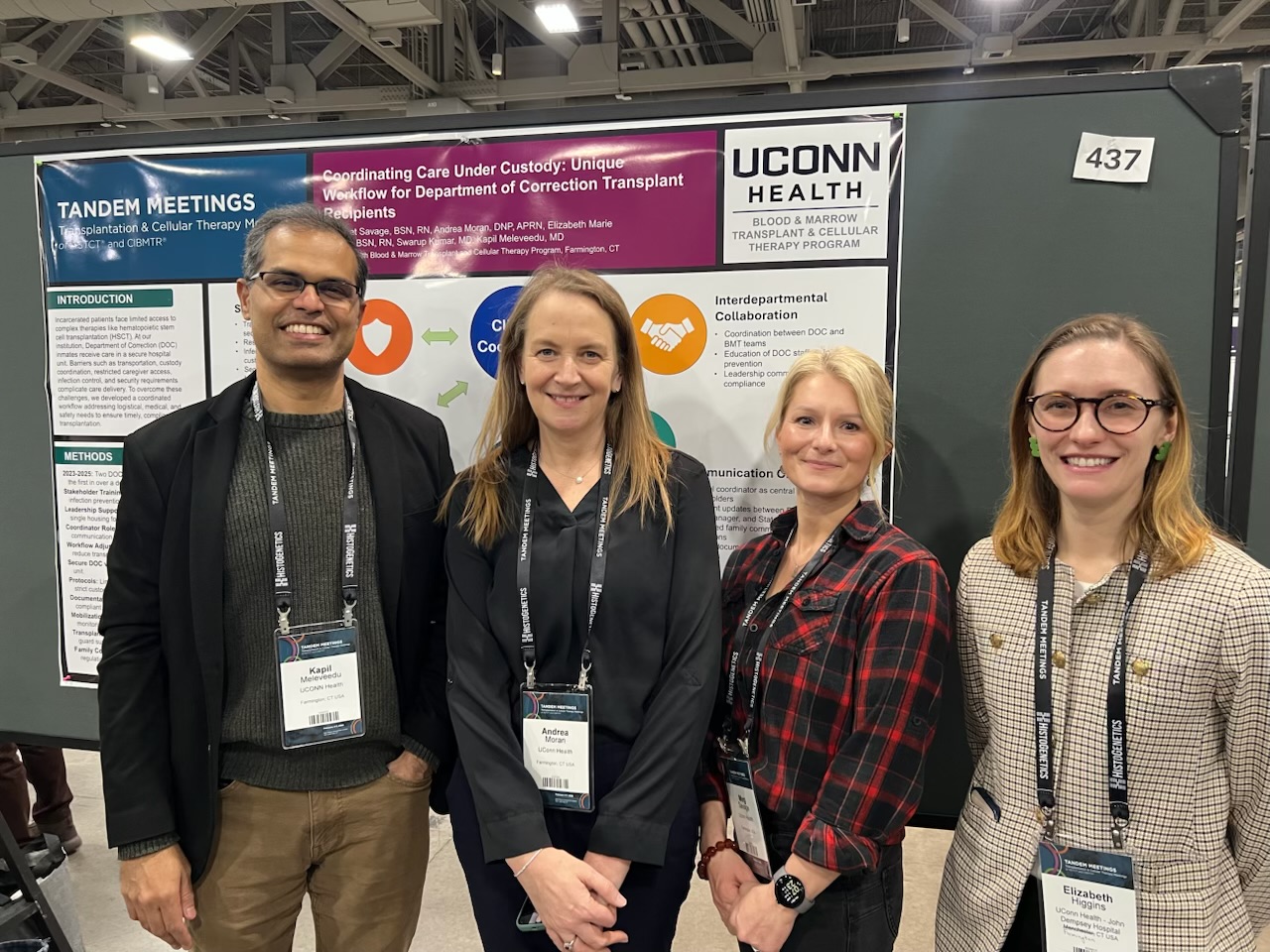Less than 6% of U.S. physicians identify as Black or African American, compared to the more than 14% reported in the 2020 census.
It’s one reason UConn Health’s Dr. Cato T. Laurencin relaunched and has been leading the Imhotep Connecticut National Medical Association (CT NMA) Society, with the goal of creating a welcoming environment for Black physicians, fellows, students, and residents.
A recent example of that was Black Doctors Day, an event to encourage Black students to consider pursuing careers as physicians, held in November at Dunkin’ Park in Hartford. The idea is to not only increase the number of Black physicians and, but also to decrease racial and ethnic health disparities that correlate with this underrepresentation.

The CT NMA Society aims to promote a sense of well-being through various programming, events, and other venues that create camaraderie among its members. As an affiliate of the National Medical Association, it shares the objective of being “a collective voice of African American physicians and the leading force for parity and justice in medicine and the elimination of disparities in health.”
“It was a collaborative effort to plan and host Black Doctors Day, but the spotlight should go to Dr. Iyanna Liles, our program and membership developer, for putting in extra effort and dedication to make sure that our event ran smoothly and successfully,” Laurencin says.
Laurencin is the CEO of The Cato T. Laurencin Institute for Regenerative Engineering, a cross-campus institute at the University of Connecticut and UConn Health. He is also the editor-in-chief of The Journal of Racial and Ethnic Health Disparities, published by Springer Nature. Laurencin co-founded the W. Montague Cobb/NMA Health Institute, a national consortium of scholars that engages in innovative research and knowledge dissemination for the reduction and elimination of racial and ethnic health disparities and racism in medicine. His work in mentoring has been recognized by the White House in receiving the Presidential Award for Excellence in Science, Math, and Engineering Mentoring from President Obama. At UConn he has created the Young Innovative Investigator Program (YIIP), the UConn Research Experience and Mentoring in Regenerative Engineering Program (funded by the National Science Foundation) and A Scientific Program in Regenerative Engineering (ASPIRE), funded by the Department of Education among many others. The programs have a special emphasis on providing opportunities for Black and Latino students to enter science and health professions.
State Sen. Douglas McCrory, D-Hartford, long known as a strong advocate for young people in Hartford and in communities across the state, gave opening remarks at Black Doctors Day. Dr. Marja Hurley, UConn Board of Trustees Distinguished Professor, professor of medicine and orthopedic surgery, and the associate dean for the Health Career Opportunity Programs at UConn Health, was the keynote speaker.
Hurley was the first Black woman to graduate from the UConn School of Medicine and is a world-known physician-scientist. She has made significant contributions not only in science, but in medical education. She is the founding director of the Aetna Health Professions Partnership Initiative, which offers summer and academic year programs to promote the health professions among middle/junior high school, high school, and college level students of all backgrounds.
Black Doctors Day also featured a doctors panel, including the CT NMA executive group, which included Dr. Lenworth Ellis from UConn Health, and a medical students panel featuring students from UConn Health and Quinnipiac University.



